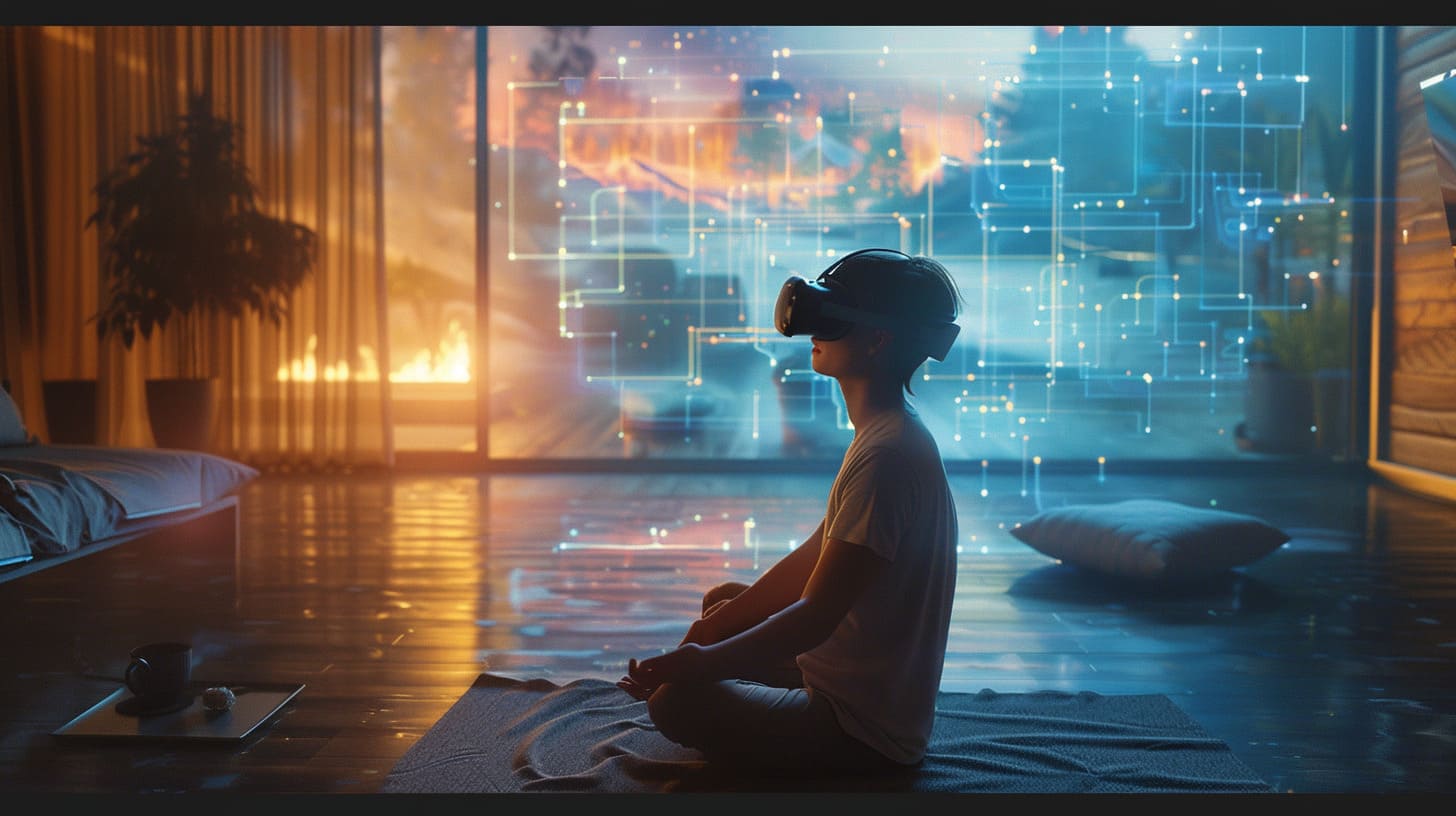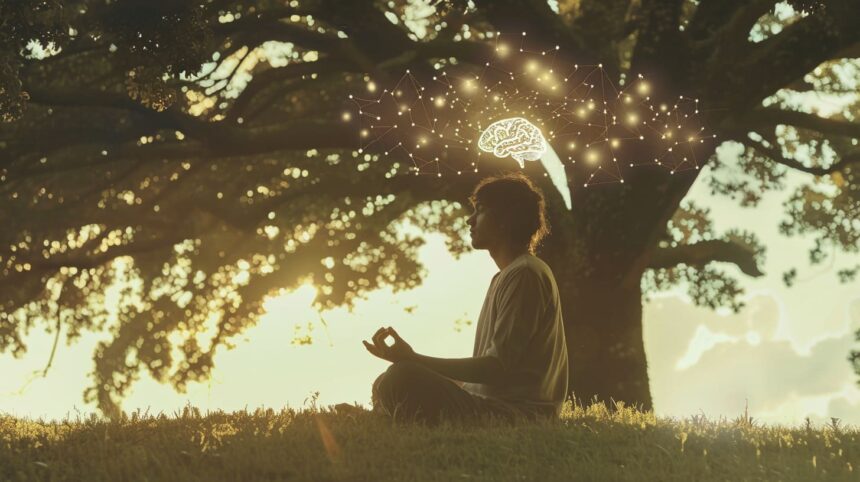Welcome to the transformative world of meditation for shifting. Recent scientific studies have illuminated the profound impact of meditation on both the brain and emotional well-being, showcasing its power not just for stress reduction, but for fostering deep personal transformation and spiritual growth. Whether you’re drawn to mindfulness for its mental health benefits, seeking a deeper sense of spiritual connectedness, or curious about the altered states of consciousness it can induce, there’s a space within meditation practices for your aspirations.
The journey of meditation for shifting is becoming increasingly popular, as evidenced by a significant rise in online searches and social media discussions. People are reporting tangible benefits such as enhanced focus, a stronger sense of inner peace, and a deeper understanding of themselves. While challenges like finding the discipline to maintain a daily meditation practice or navigating the initial discomforts may arise, the consensus is clear: the rewards of perseverance are well worth the effort. Embarking on this journey can open doors to emotional healing, unlock new realms of consciousness, and catalyze a profound mind shift towards a life filled with purpose and peace.
Exploring Meditation Techniques for Personal Shift
Meditation isn’t just a moment of peace or a break from your busy schedule; it’s a transformative practice that reshapes your brain. Yes, you heard that right. By engaging in daily meditation practice, you’re not only finding your zen but also sculpting your brain’s structure in ways that positively impact emotional regulation and memory.
Research illuminates the profound effects of mindfulness meditation on the brain, particularly its ability to foster neuroplastic changes. Imagine your brain as moldable clay, with meditation being the gentle hands that shape and refine it. Studies, including a pivotal one from “Frontiers in Human Neuroscience,” highlight that mindfulness can beef up the gray matter density in key areas like the hippocampus, insula, and prefrontal cortex. These aren’t just any areas; they’re the VIPs responsible for managing your emotions, memory, and attention.
But how does this translate to daily life? Through mindfulness, you’re essentially training your brain to become a master at emotional regulation. Picture turning down the volume on your fear response, thanks to decreased activity in the amygdala, and boosting your focus, courtesy of an energized prefrontal cortex. The result? A calmer, more centered you, ready to tackle life’s ups and downs with grace.
And let’s not forget memory. Whether you’re trying to remember where you left your keys or a cherished memory, mindfulness meditation has your back, enhancing both working and long-term memory by encouraging you to live in the moment and focus.
The beauty of meditation lies in its variety. Mindfulness-based stress reduction (MBSR) and transcendental meditation (TM) are two sides of the same coin, offering unique benefits. MBSR, with its combo of meditation, body scans, and yoga, is your go-to for stress management and cognitive sharpness. TM, on the other hand, finds strength in simplicity, using a personalized mantra to bring about peace and mental clarity.
Long-term meditators are walking testimonials of these benefits, sporting more gray matter in areas tied to emotional processing and decision-making. This isn’t just a temporary boost but a lasting change that equips you with the tools for reduced stress, heightened attention, and improved emotional well-being.
So, whether you’re seeking emotional healing, stress reduction, or a mind shift towards personal transformation, meditation offers a path. Start your journey today and watch as your practice leads to profound changes, not just in your mind but in every aspect of your life.
Enhancing Meditation Through Modern Technology

Virtual Reality (VR) is transforming the way we approach meditation, making it more immersive and engaging. With the latest VR meditation apps, you can dive into tranquil environments that were once just a figment of the imagination. Imagine meditating on a serene beach or in the heart of a peaceful forest, all from the comfort of your home. This is not just a thought experiment; it’s a reality made possible through VR technology.
The Evolution of Meditation Practices with VR
1. Samadhi VR Meditation: This app transports you to calming landscapes, enhancing your meditation with binaural beats and real-time heart rate monitoring.
2. VR Meditation and Relaxation: Choose your zen from a peaceful forest to a cozy fireplace, exploring various mindfulness techniques.
3. InnerSpace VR: Venture into other dimensions, each offering unique meditation techniques amidst surreal environments.
4. Holospace Meditation: Immerse yourself in 360-degree visuals, accompanied by soothing binaural beats and ambient sounds.
These apps not only boost your focus during meditation by minimizing distractions but also provide a soothing atmosphere that can significantly amplify your relaxation and mindfulness.
Scientific Backing and Emerging Trends
Recent studies underscore the effectiveness of VR in meditation for stress reduction and mental health improvement. For instance, VR meditation has shown promising results in alleviating stress and anxiety among cancer patients and healthcare workers. This success can be attributed to the immersive nature of VR, offering a sense of presence and control, thereby enhancing the meditation experience.
Emerging trends include virtual reality retreats, meditation classes, and even games, making meditation more accessible and appealing. These innovations cater to everyone, from those seeking a unique meditation experience to individuals dealing with mental health issues, providing tailored meditation practices.
Why VR Meditation Could be Your Next Mind Shift Tool
VR meditation is not just a novel idea; it’s a practical tool for personal transformation. The immersive experience aids in better focus and visualization, crucial aspects of effective meditation. Whether you’re looking to deepen your practice or embark on a journey of emotional healing and spiritual growth, VR meditation offers a new dimension to explore.
By integrating VR into your daily meditation practice, you’re taking a step towards harnessing technology for stress reduction, mindfulness, and overall well-being. It’s a testament to how traditional practices can evolve with modern technology, offering new pathways to achieve personal transformation and mind shift.
Integrating Meditation into Daily Life
Incorporating meditation into your daily routines isn’t just a great idea; it’s a pathway to personal transformation. The key is to make it simple and accessible, so it seamlessly blends into your life.
Daily Routines and Long-term Benefits
1. Set a Time and Place
First off, nail down a specific time and place for your meditation practice. It could be as easy as a quiet corner in your home in the early morning or a park bench during your lunch break. Consistency in timing and location can turn meditation from a sporadic activity into a steadfast habit.
2. Keep It Short and Sweet
If you’re pressed for time, remember, short meditation sessions of just 5-10 minutes can pack a punch. They’re not only manageable but have also been proven to be effective. Think of it as the espresso shot of emotional healing.
3. Mindfulness Throughout the Day
Embed mindfulness into daily activities. Whether you’re eating, walking, or even doing chores, being fully present can seriously ramp up your stress reduction game. It transforms mundane moments into opportunities for spiritual growth and emotional healing.
4. Embrace Technology
Let’s not forget the arsenal of digital tools at our disposal. Meditation apps and guided visualizations can offer the nudge you need, providing reminders and guidance. With new
technologies like virtual reality meditation and wearable devices tracking your progress, integrating meditation into daily life has never been more exciting.
5. Long-term Payoffs
Diving into daily meditation practice is more than a momentary mind shift. It’s about laying the groundwork for lasting change. From bolstering mental health to enhancing cognitive functions, the benefits are well-documented. Imagine improving your attention span, memory, and even potentially slowing cognitive decline as you age.
Emerging Trends and Technologies
The landscape of meditation is evolving, with virtual reality and neurofeedback leading the charge into new realms of possibilities. These tools offer immersive experiences and real-time feedback, amplifying the impact of each session. Meanwhile, virtual group meditation sessions foster a sense of community, proving that connection can thrive, even remotely.
Incorporating meditation into your daily routine is a journey of personal transformation. By setting aside time, embracing mindfulness in daily activities, and leveraging technology, you pave the way for profound emotional healing and spiritual growth. The journey towards a transformed self begins with these small, yet impactful, daily practices.
Conclusion
It’s clear that meditation for shifting is a powerful tool for emotional healing, stress reduction, and spiritual growth. Scientific research backs the numerous benefits, including better emotional regulation, increased emotional intelligence, enhanced spiritual connection, and significant changes in brain structure supporting mind shift. Modern techniques like mindfulness-based digital interventions, neurofeedback-assisted meditation, and virtual reality meditation are making this ancient practice even more accessible and effective. By incorporating daily meditation practice into your routine, you’re paving the way for personal transformation and a host of long-term benefits. Whether you’re seeking to reduce stress, improve your focus and relationships, or enhance your overall well-being, meditation provides a path to a happier, more fulfilled life.

Leave a Reply